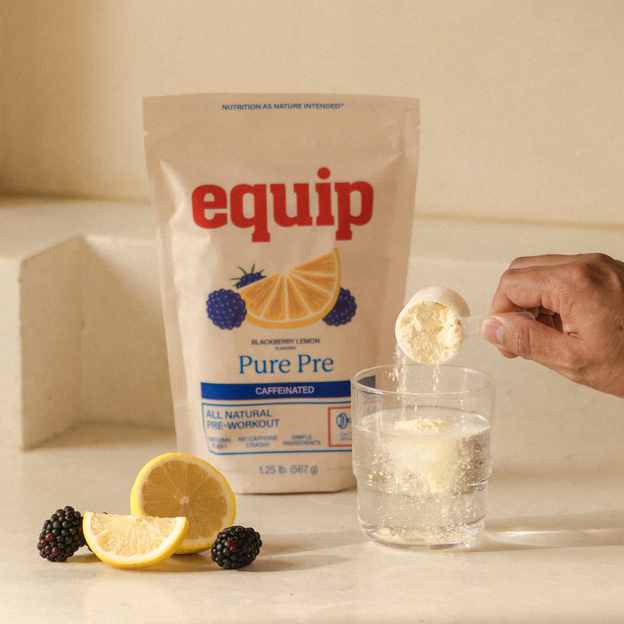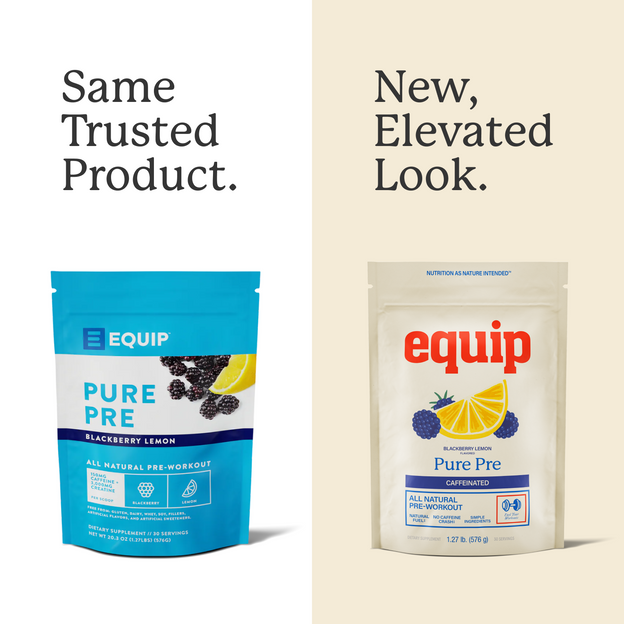It’s true that whey protein naturally contains more leucine per serving than beef isolate. But in practice, this doesn't lead to a difference in muscle growth and can be easily addressed.
1. Total Daily Leucine Intake > Single-Serving of Leucine
The idea that you need 2–3g of leucine in a single sitting to trigger muscle protein synthesis (MPS) comes from studies on fasted individuals consuming isolated protein. In the real world, most people:
-
Eat multiple meals per day with mixed macros and diverse amino acids.
-
Rarely consume protein in total isolation, e.g. solely one scoop of protein with water and no other nutrition in the 2-3hr window in which the protein is consumed.
-
Aren’t operating in a fasted, zero-nutrient baseline
2. Muscle Growth Isn’t Driven by Leucine Alone
Leucine is important—but it doesn’t act in isolation. All nine essential amino acids (EAAs) are required to support protein synthesis. Beef protein isolate offers a complete EAA profile, including glycine, proline, and arginine, which also support collagen formation, connective tissue repair, and gut health—benefits whey doesn’t offer at meaningful levels.
Despite having lower leucine content than whey, several studies suggest that beef protein offers superior muscle protein synthesis. Here are a few (sources linked below):
-
In one study on 30 college-aged resistance trained men, use of beef protein isolate resulted in a slightly higher increase in lean body mass than whey (5.7% vs 4.7%). No significant differences were observed in strength gains, but the beef protein also resulted in slightly more fat loss than whey (10.8% vs 8.3%).
-
A second study noted that 20 grams of beef protein was better for preserving or increasing thigh muscle mass in 24 master-age (35-60 years old) triathletes during triathlon training compared to whey protein. Additionally, only beef protein significantly improved iron status. Furthermore, there was a numerically greater reduction in fat mass with beef (-6.7%) vs. whey (-4.1%).
-
A third study compared 20 grams of beef or whey protein in 8 recreationally active males. Increase in fat-free mass was higher with beef (2.0%) vs. whey (1.4%) protein. Additionally, beef increased biceps brachialis thickness 11.2% vs. 1.1% with whey. Furthermore, only beef protein increased arm and thigh circumferences. The 1 rep max for squat was also higher with beef (21.6%) vs. whey (14.6%) and 1 rep max for bench was also higher (15.8% vs. 5.8%, respectively).
Daily total protein intake and consumption of all nine essential amino acids are what matter most for long-term muscle growth—not hitting a precise amount of an isolated amino acid in a very short window.
3. It’s Easy to Reach the 2–3g Leucine Threshold
If you want to hit the referenced leucine “trigger” (2-3g of leucine) around a workout, it’s simple to boost your intake:
-
Use two scoops of Prime Protein (~2g leucine, 40g protein).
-
Mix it with 1 cup of milk (+0.7g leucine).
-
Add our Grass-Fed Collagen powder (0.5g leucine).
-
Pair it with eggs, steak, or other protein sources.
-
Stack it with EAAs supplement or leucine isolate.
Or even easier, just hit the 2–3g target across a 2-3hr window post workout with a shake and proper, whole foods! Most people eating a mixed meal with beef protein will naturally meet or exceed this threshold without even trying.
4. Beef Protein Has Other Unique Advantages
It’s dairy-free, lactose-free, and ideal for those who don’t tolerate whey. It provides collagen-rich aminos (glycine, proline, hydroxyproline) that support joints, skin, gut health, and connective tissue
It’s a clean, whole-food-derived protein source with no gums or fillers.
Bottom Line:
While beef protein isolate has less leucine per scoop than whey, it still plays a powerful role in muscle building—especially when used as part of a mixed diet or post-workout shake. Leucine content is easy to augment, and overemphasizing it ignores the full context of how real people eat, train, and recover.
Sources:
Sharp, M., Shields, K., Lowery, R., Lane, J., Partl, J., Holmer, C., Minevich, J., Souza, E. D., & Wilson, J. (2015). The effects of beef protein isolate and whey protein isolate supplementation on lean mass and strength in resistance trained individuals - a double blind, placebo controlled study. Journal of the International Society of Sports Nutrition, 12(Suppl 1), P11. https://doi.org/10.1186/1550-2783-12-S1-P11
Naclerio, F., Seijo, M., Larumbe-Zabala, E., Ashrafi, N., Christides, T., Karsten, B., & Nielsen, B. V. (2017). Effects of Supplementation with Beef or Whey Protein Versus Carbohydrate in Master Triathletes. Journal of the American College of Nutrition, 36(8), 593–601. doi:10.1080/07315724.2017.1335248
Naclerio F, Seijo M, Larumbe-Zabala E, Earnest CP. Carbohydrates Alone or Mixing With Beef or Whey Protein Promote Similar Training Outcomes in Resistance Training Males: A Double-Blind, Randomized Controlled Clinical Trial. Int J Sport Nutr Exerc Metab. 2017 Oct;27(5):408-420. doi: 10.1123/ijsnem.2017-0003. Epub 2017 May 22. PMID: 28530448


